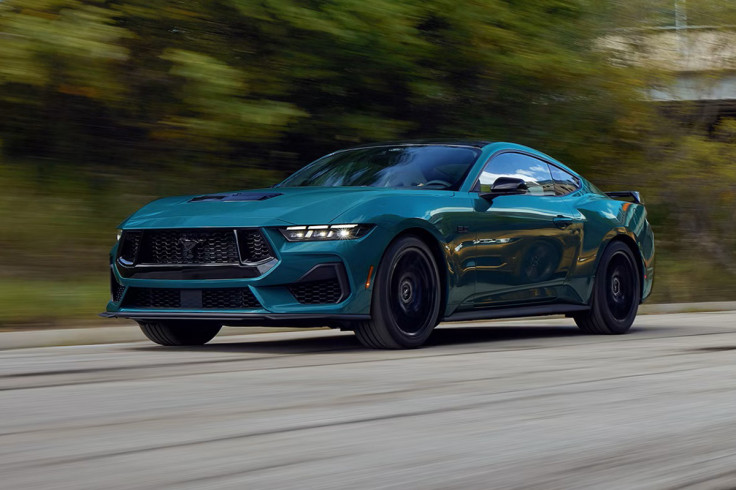Ford's Rearview Camera Malfunction And Steering Issues Spark Major Recall – Could It Lead to More Accidents?
Nearly three-quarters of a million Ford vehicles are being recalled in the US after the NHTSA identified safety issues that could lead to crashes or injuries.

When you are driving a vehicle as powerful as a Ford Super Duty or as iconic as a Mustang, safety is the last thing you want to doubt.
Yet, this week, Ford owners have been hit with worrying news. The automaker has announced a sweeping recall of nearly 750,000 vehicles across the United States over a trio of serious defects — faulty rearview cameras, steering failures, and malfunctioning seatbelts.
With such widespread issues affecting some of Ford's most popular models, many drivers are now asking whether the brand's reliability has taken a turn for the worse.
Rearview Camera Glitch Sparks Safety Concerns
The largest portion of the recall targets more than 290,000 Super Duty trucks from the 2020 to 2022 model years, including the F-250 SD, F-350 SD, and F-450 SD.
According to the National Highway Traffic Safety Administration (NHTSA), these vehicles have a defect in their 360-degree rearview camera systems.
The problem lies in the image processing module software, which may fail to display the rear image correctly under certain lighting conditions. This could limit visibility for drivers when reversing, significantly increasing the likelihood of collisions.
The NHTSA listed the recall under number 25V-686, while Ford has assigned it as 25SA8. Dealers will update the affected software free of charge.
Although Ford insists it has not recorded any crashes linked to this issue, experts warn that a blank or distorted camera image could prove dangerous in tight spaces or busy areas.
Steering Control Defect Raises Alarm
A second recall, affecting 115,539 Super Duty trucks from model years 2020 to 2021, poses an even more immediate hazard. The vehicles' steering column upper shafts could potentially detach, leading to a sudden loss of steering control.
This defect, documented as recall 25V-626 by the NHTSA, has raised alarm bells among drivers who use these heavy-duty vehicles for work or transport.
Ford confirmed that dealers will inspect and, if necessary, replace the faulty components at no cost. Notification letters were mailed out earlier this month, with a permanent remedy expected by December.
Safety advocates argue that steering-related recalls represent one of the most serious forms of mechanical failure, as drivers could lose complete control without warning. For vehicles of such size and weight, the consequences could easily prove catastrophic.
Seatbelt Failure In Mustang Models
The third and most extensive recall affects 332,778 Ford Mustangs built between 2015 and 2017. The problem involves corroded seatbelt cables that could break under stress during a crash, leaving occupants unrestrained.
The NHTSA stated that corrosion can occur when seatbelt mechanisms are exposed to moisture or road salt, especially in colder regions.
The recall, labelled 25V-614, will see Ford dealers inspect and replace the damaged cables free of charge. Notification letters have already been scheduled for October, with full remedy information expected by early 2026.
While no injuries have yet been linked to this defect, the potential for seatbelt failure represents a serious safety risk. In a collision, the system's inability to secure passengers could dramatically increase the severity of injuries.
What Ford Owners Should Do Next
Ford is urging all affected vehicle owners to act quickly. Drivers can verify if their car is included by visiting nhtsa.gov/recalls or contacting Ford's customer service at 1-866-436-7332. All repairs will be conducted at no cost to the owners.
The recall underscores ongoing challenges in the auto industry, as manufacturers struggle to balance technological innovation with reliability. Modern vehicles depend heavily on electronic systems that, while improving comfort and convenience, also introduce new points of failure.
Industry analysts say Ford's repeated recalls over rearview camera faults this year highlight a broader issue: quality control in the age of automation. This latest move marks Ford's third major camera-related recall in 2025 alone.
As consumers grow increasingly cautious about the safety of their vehicles, Ford faces mounting pressure to reassure customers that such lapses are being addressed swiftly and transparently.
As vehicles become smarter, are they also becoming riskier?
© Copyright IBTimes 2025. All rights reserved.





















